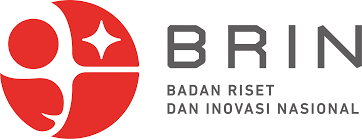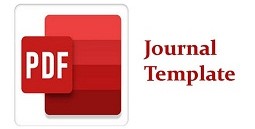Implementation Model of Character Education Values in the Islamic Boarding School System
DOI:
https://doi.org/10.58355/attaqwa.v2i4.62Keywords:
Character Education, Implementation Model, Islamic Boarding SchoolAbstract
School is a time of character growth, which greatly determines a person's moral and intellectual foundations throughout his life. To build students' personalities, education must have a mission that shapes students' personalities. Character education basically focuses on building students who are cultured and dignified. All characters can change, and education is needed to change character. Using qualitative research methods with a phenomenological approach. Basically, the results of the research show that both Islamic boarding schools both implement the character education values proclaimed by the Ministry of National Education, namely values originating from religion, which in this case is Islam, Pancasila, culture, which are in accordance with the objectives of national education, namely: ( 1). Religious, (2). Honestly, (3). Tolerance, (4). Discipline, (5). Hard work, (6). Creative, (7). Independent, (8). Democratic, (9). Curiosity, (10). National spirit, (11). Love of the homeland, (12). Appreciating achievements, (13). Friendly/communicative, (14). Love peace, (15). Likes to read, (16). Care for the environment, (17). Social care, and (18). Responsibility. Supporting factors in implementing the character education model are: The presence of parental participation, Motivation, Leadership, and commitment to cooperation between the Islamic boarding school and parents, while the inhibiting factors in implementing the character education model are: Still minimal attention from parents, Insufficient environment. support, and limited supervision from teachers, caregivers and parents.
Downloads
References
Anslim Strauss Julied Corbin. (1997). Dasar-Dasar Penelitian Kualitaif. Bina Ilmu.
Desi Sabtina. (2023). Problematika Pendidikan Islam di Era Globalisasi dan Alternatif Solusinya. DIROSAT: Journal of Education, Social Sciences & Humanities, 1(2), 58–68. https://doi.org/10.58355/dirosat.v1i2.10
Erna, M., Irfandi, I., & Rasmiwetti, R. (2021). Development of Learning Media Based on Autoplay Chemistry to Improve Students’ Communicative Characters on Chemistry. JTP - Jurnal Teknologi Pendidikan, 22(3), 167–181. https://doi.org/10.21009/jtp.v22i3.17823
Irfandi, I., Mualif, A., Alhairi, A., Musdansi, D. P., Akbar, H., Mailani, I., Ningsih, J. R., Yuhelman, N., & Murwindra, R. (2023). Pemanfaatan teknologi informasi dan komunikasi sebagai media dan sumber belajar bagi anak. BHAKTI NAGORI (Jurnal Pengabdian Kepada Masyarakat), 3(1), 74–79.
Irfandi, I., & Murwindra, R. (2022). Analisis Pendahuluan Pengembangan Media Wondershare Quiz Creator Sebagai Alat Evaluasi Pembelajaran Kimia Pada Materi Hidrolisis Garam Introduction Analysis of Development of Wondershare Quiz Creator Media as a Chemical Learning Evaluation Tool on Salt Hy. Ensiklopedia: Jurnal Pendidikan Dan Inovasi Pembelajaran Saburai, 02(02), 73–79.
Irfandi, I., Murwindra, R., Musdansi, D. P., N, W. A., & Hanri, C. (2022). Identification and Analysis of Students’ Misconceptions Using Three-Tier Multiple Choice Diagnostic Instruments on Thermochemistry Topic. IJECA (International Journal of Education and Curriculum Application), 5(3), 306. https://doi.org/10.31764/ijeca.v5i3.11613
Mahfudz, H. M. S. (1998). Dinamika Pesantren Dampak Pesantren dalam Pendidikan dan pengembangan Masyarakat. Manfred Oepan & Wolfegang Karcher.
Maksudin. (2010). Pendidikan Islam Alternative: Membangun Karakter Melalui Sistem Boarding School. UNY Press.
Masqon, D. (2011). Dynamic of Pondok Pesantren as Indegenous Islamic Education Centre In Indonesia. Tsaqafah, 7(1), 155–168.
Moleong, L. J. (2000). Metodologi Penelitian Kualitatif. Rosda karya.
Muhaimin, et al. (2001). Paradigma Pendidikan Islam: Upaya mengefektifkan pendidikan agama Islam di sekolah. Remaja Rosdakarya.
Muslich, M. (2011). Pendidikan Karakter: Menjawab Tantangan Krisis Multidimensional. Bumi Aksara.
Niko Riyan Nugroho. (2023). Approaches In Islamic Education. Al-Fadlan: Journal of Islamic Education and Teaching, 1(1), 7–11. https://doi.org/10.61166/fadlan.v1i1.2
Rini, R., Irfandi, I., & Yuhelman, N. (2023). The Urgency Of Kvisoft Flipbook Maker-Based Media Development Reviewed By Literature Review. JU-PENDI : JURNAL PENDIDIKAN INDONESIA, 01(02), 75–80.
Ruslan Gunawan. (2023). Pengaruh Ekstrakurikuler Keagamaan Terhadap Pembentukan Karakter Religius Peserta Didik Di SMAN 1 Margaasih. LECTURES: Journal of Islamic and Education Studies, 2(1), 9–21. https://doi.org/10.58355/lectures.v2i1.19
Samani, M., & Hariyahto. (2011). Konsep dan Model Pendidikan Karakter. PT Remaja Rosdakarya.
Sugiyono. (2012). Metode Penelitian Pendidikan, Pendekatan Kuantitatif, Kualitatif Dan R & D. Alfabeta.
Tiya Lestari. (2023). Community Development Through Activities Teaching Religious Education to Children at SDN 2 Arahan Lor. Community: Jurnal Hasil Penelitian Dan Pengabdian Masyarakat, 2(1), 68–74. https://doi.org/10.61166/community.v2i1.24
Zubaedi. (2011). Desain Pendidikan Karakter Konsepsi dan Aplikasinya dalam Lembaga Pendidikan. Kencana.
Downloads
Published
How to Cite
Issue
Section
License
Copyright (c) 2023 Lasmiadi, Maya Febriani Chandra, Alhairi

This work is licensed under a Creative Commons Attribution 4.0 International License.















